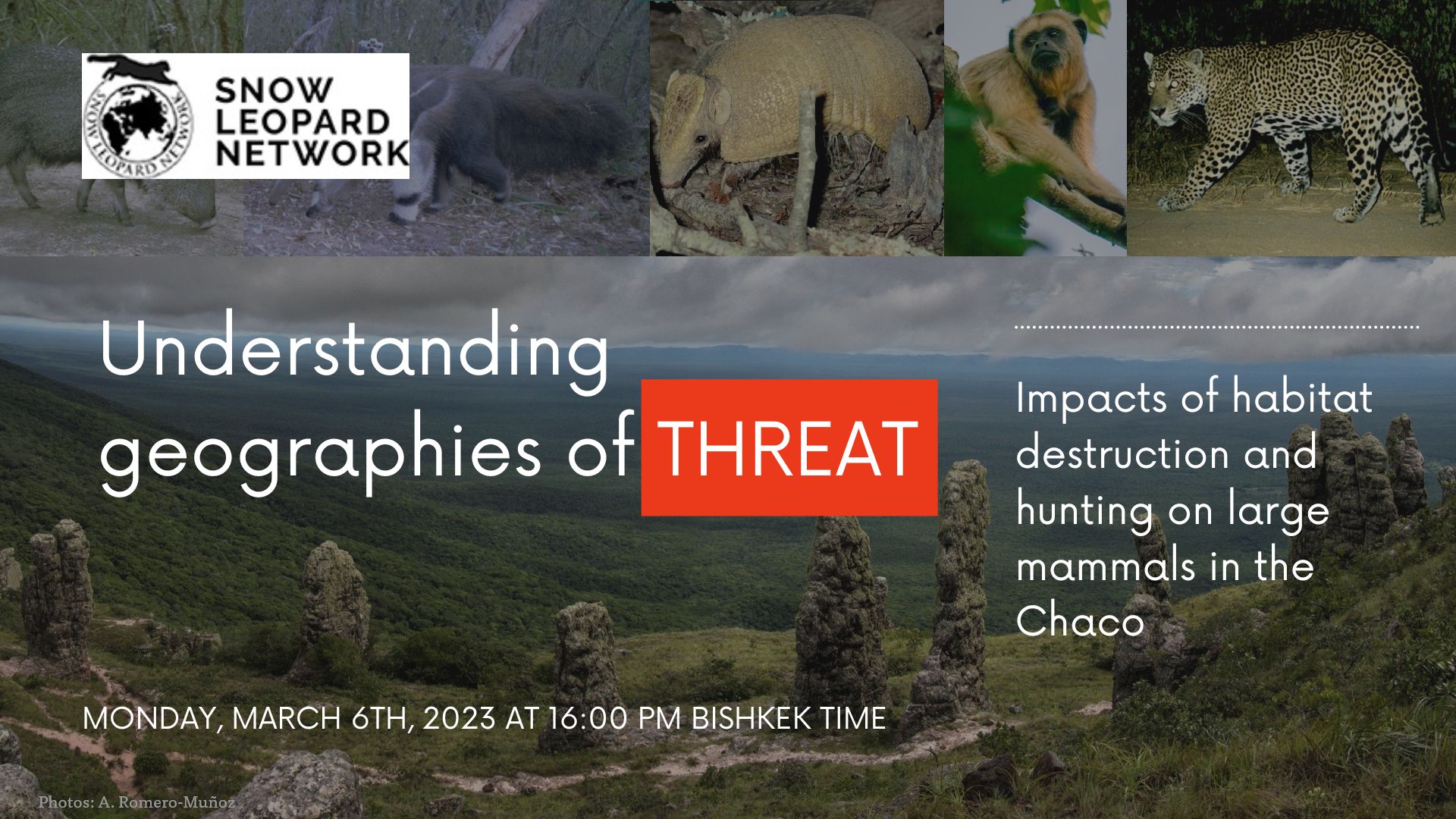
The world’s biodiversity face persistent and changing threats, resulting in degradation of habitats and declines in species populations. Threats are dynamic factors that cause decline or destruction of habitat, population size, or biodiversity in any site of interest. Conducting a comprehensive analysis of threats can be more challenging than it may first appears. Threats can be direct, indirect, local or globally driven and they often vary over time with new threats emerging. The Snow Leopard Network is delighted to invite you to the webinar entitled “Understanding the geographies of Threat”. Our guest Alfredo Romero-Muñoz, from the Humboldt University, Berlin, will share how his team is analysing the impact of threats to wildlife and habitats across the Gran Chaco region in South America. The talk will be followed by a discussion, with our discussant Dr. Ranjini Murali, on the geography of threats across snow leopard landscapes and exchange on approaches to assess them.
About the Talk
This fascinating presentation describes research on the impacts of habitat destruction and hunting pressure across the 1.1 million km2 Gran Chaco region in South America – the world’s largest dry forests that has become a global deforestation hotspot. By analysing the impact of these threats in the habitats and populations of different species, we aimed to understand what is the relative impact of these threats, and how those impacts have changed over time. In addition, we explore how the two threats interact in space and what may be the implications of these interactions. The talk will be followed by a discussion and exchange on the geography of threats across snow leopard landscapes.

About our Guest – Alfredo Romero-Muñoz
Alfredo Romero-Muñoz is a researcher at Humboldt University Berlin focused on understanding the impacts that land use change brings to biodiversity, including through habitat destruction and hunting, and identifying opportunities for conserving biodiversity in changing regions.

Our Discussant – Ranjini Murali
Dr. Ranjini Murali has over ten years experience working in snow leopard landscapes. She is currently a postdoctoral researcher at the Biography Lab in Humboldt Universität zu Berlin. She works on understanding the impacts sudden of institutional changes on large carnivore populations. She’s also a conservation scientist with the Snow Leopard Trust and affiliated with the Global Snow Leopard Ecosystem Programme (GSLEP).
Date/Time
Monday, March 6th, 2023 at 16:00 pm Bishkek time
Location
ZOOM, to join this talk, REGISTER HERE
Please note
- If you have never used Zoom before, we recommend that you try the link 10 minutes before the start of the lecture.
- Please feel free to write questions in the comment area and there will be time for questions/discussion at the end of the talk.
- Please note that the session will be recorded and later featured on the SLN website. If you have concerns about this please let us know before the session.
